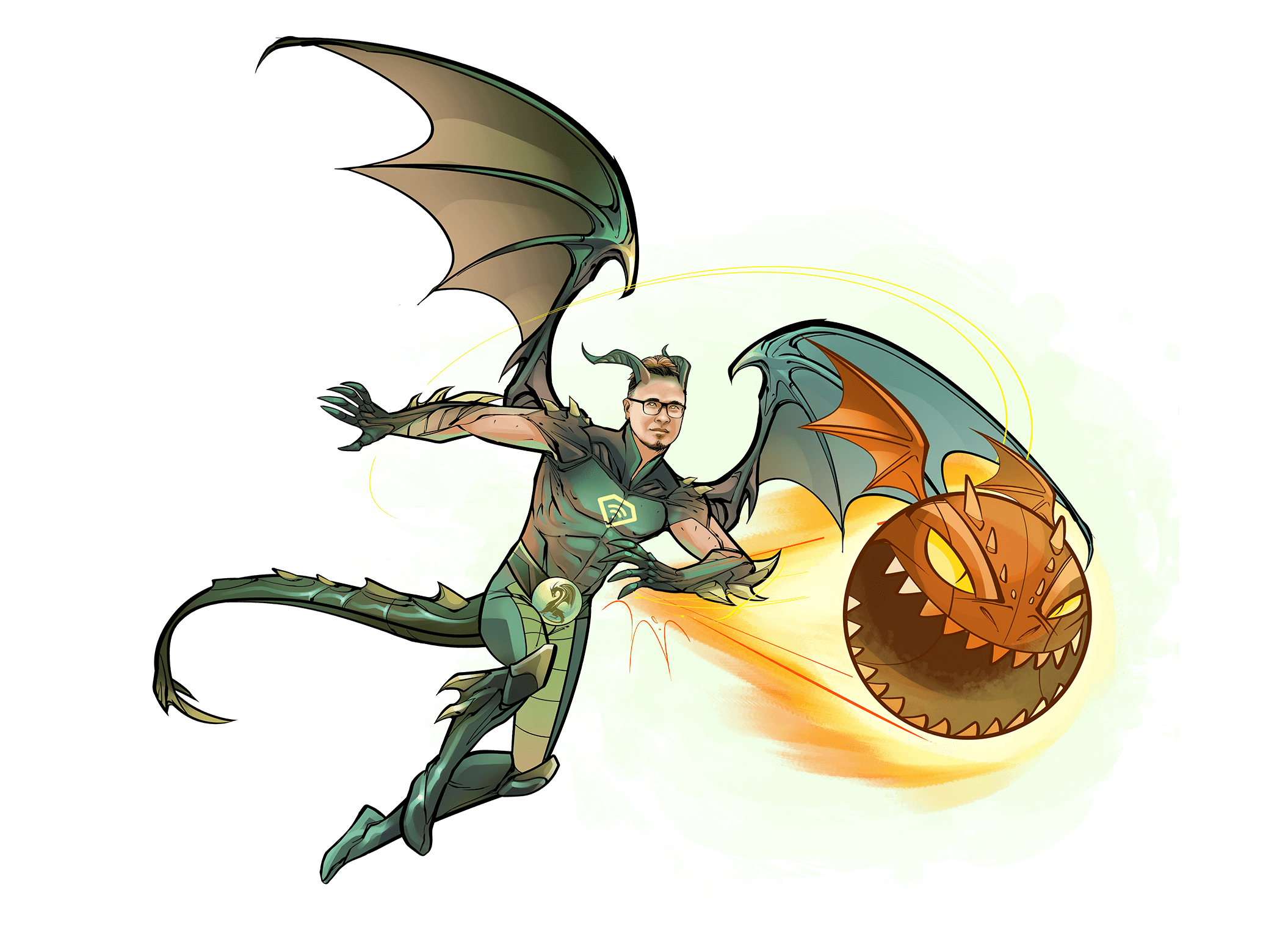Kenneth Wong
Sr. Director of Ad Revenues



Kenneth Wong, Sr. Director of Ad Revenue at Scopely, has over 15 years of mobile gaming expertise. He led monetization at Hothead Games for nearly a decade and has experience managing multi-million dollar user acquisition campaigns. Kenneth’s knowledge extends to monetization, user acquisition, advertising, UX/UI design, analytics, and marketing.
Kenneth and Yimin Gu form an energetic Mobile Heroes duo representing Scopely.
Can you describe what it’s like working for an industry giant like Scopely versus your time at a smaller independent studio in Hothead Games?
I was at Hothead for nearly 10 years before joining Scopely, where I’ve been for three years. Working in an independent studio like Hothead exposed me to many different areas. I worked on user acquisition, business analytics, game design, gaming economy design, UX, UI—everything, including forecasting and gaining perspectives on upcoming games. This holistic view of the business prepared me for working at a big studio. It helps if you understand every team’s priorities because everything is so specialized.
In my case, before pitching ads to the game team, I already knew exactly what their concerns were, how they looked at the game data, and what they found meaningful. I could advocate ads in a way where it’s not just based on ad revenue but addresses game revenue as a whole, retention rates, engagement, and how we could maximize our impact on the business. The everyday stakes of working at Scopely are much higher, but I was set up for success through my work at Hothead.
You’ve been in the mobile app industry for over a decade. What is the secret to your career longevity in mobile ad monetization?
I don’t think there’s any secret. If anything, I will say that when I’m interviewing a candidate, I always ask them, “What is it that you want in life or your career?” You have to find a place where you feel happy. Longevity, for me, comes from being at a place where I’m happy to go to work every day. I keep doing what I do because I enjoy what I do. I’m a numbers guy, and there aren’t a lot of industries where your role is to play games and understand games through research and numbers.
Also, the space is never static. Just 10 years ago, there was no attribution or mediation. Now you have to deal with constant changes to privacy policies. You have to keep learning and strategizing. I’m not doing the same thing I was 10 years ago. That freshness allows me to keep motivating myself.
What is your most valuable skill as a senior director of ad monetization at a large mobile game dev like Scopely, compared to a valuable skill needed as an ad monetization manager?
I mentioned this before, but you need to understand the ecosystem holistically. You must understand the game live ops schedule and a game team’s values. What kinds of KPIs are they looking at for early versus late users? Rather than building a one-size-fits-all ads plan, you have to tailor the method to the individual cohort and know how to segment different people. In other words, you have to think like a producer or an Executive Producer. Knowing your audience is especially important because you are essentially running a business—doing internal sales and dealing with network partners. You’re not just looking at eCPMs—you have to look at the much broader scope of the ad ecosystem.
What does mobile ad monetization look like today in a chart-topping mobile game?
Ad monetization criteria are very different in a chart-topping mobile game. It’s less about driving the most ad revenue. It’s all about the user experience. How do we use ads as a launching pad for better engagement? How can we drive incremental revenue without affecting or deteriorating our user experience? We greatly focus on ad quality metrics, stability, and time to close. You can try to maximize revenue once you maximize the experience. There’s no right and wrong, but the business focus is different.
What is your bullish case for the mobile gaming market today?
I might be more bearish than bullish, but I think there’s still a lot to be optimistic about. In terms of the mobile gaming market outside the ad tech ecosystem, with the success of Monopoly Go, we can see that people still want to play new games. People relate to games and spend a lot of time engaging. We see this also with other studios launching new games. In recent years, a couple of big games found a global audience, which gave us confidence that we could have a top-grossing game.
In terms of ad tech, people are coming up with creative ideas. I’m seeing exciting things in in-app advertising, partnerships with Amazon, etc. This can boost what may be a stagnant ad creative space. We’re looking for the next ad format that people really engage with. I think that’s where I have hope.
What is your bearish case for the mobile gaming market today?
Anyone in the industry knows that privacy is the biggest challenge. Privacy is here to stay. The customer wants the best of both worlds. I did ask some of my friends who play games, “Hey, did you opt into the LAT [Limited Ad Tracking]?” And then they say, “Yeah. But I don’t like the ads anymore. It’s not always the thing I play.”
It’s like, “Well, if you’re opting out, we have no way of giving you targeted ads.” We have to get past that. How do we respect the privacy of individual users and give engaging ads?
The market is also consolidating. Consolidation is usually a sign that the market is maturing. Growth is starting to decline, and people are now looking for margins. As companies get bigger, there are less creative ways of impacting the business. With fewer new players coming in, competition might not be as fierce as before. That might lead to a not-as-rosy picture of future performance.
Do you think AI will impact ad monetization in the industry? And if so, how?
AI has always been part of our industry. We use AI on an everyday level. One of the things we’re doing is automating operational processes by setting up line items, creating ad unit IDs, and things like that using AI. On the business side, I think we can better understand user behavior through AI and create a more dynamic user experience. For example, using AI for the reward system or AI to determine what type of ads people engage in. We’re already using ML in bidding technology. That’s my thinking, but my knowledge of AI is less technical, so I can’t be sure.
What will be the next privacy hurdle that ad monetization professionals will face in the coming months?
One imminent hurdle is what Google will do regarding first-party data—deprecating GAID. Regarding other privacy hurdles, I think it involves what Apple has already decided and what GDPR, CCPA, or even COPPA will limit. I don’t think privacy is a new issue—but it’s the main challenge we’re all facing. Relatedly, on the Apple side again, what will happen when they eventually remove fingerprinting? It’s a privacy-related change that will impact the ad business or the UA business as a whole.
What would you see if we gave you access to a crystal ball to peer into mobile ad monetization’s short- and medium-term future?
In the short term, we’re definitely in a transition mode. Everyone is adapting to post-pandemic performance, eliminating IDFA, and all the consolidations that happened in the last few years. I don’t think we can go back to how we were performing. Can we go back to 2020 levels? Can we go back to the 2021 levels? My pessimistic side says no—those conditions were unique to how the world operated. But can the industry be better than what it is right now? Yes. I’m bullish on that.
But, it has to be a partnership that involves all sides: the network side, the ad monetization side, and the product team side. How do we integrate ads to make a more user-friendly experience? I hope that it will continue to grow. We might not have the extreme growth we had five or six years ago. But I refuse to believe that we are on a mature downward slope for the near future.
What are your top three go-to resources for keeping up with the mobile advertising industry?
I listen to some podcasts. I read Pocket Gamer. Mobile Heroes is one source that I also read. And I have to shout out industry friend Eric Seufert’s Mobile Dev Memo. Michail Katkoff’s Deconstructor of Fun is also a really good resource. These should all be well-known resources in the industry for people just starting in this line of work.



